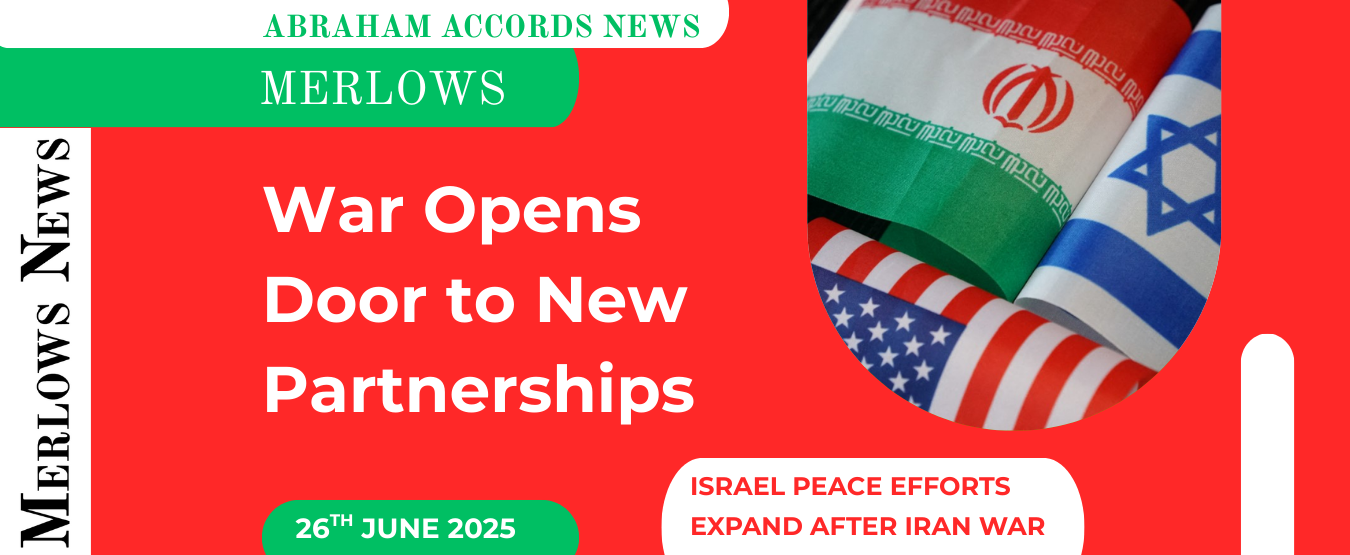Israel’s Prime Minister claims victory over Iran opens the door to peace with Saudi Arabia and Syria. Western media frame it as “fragile optimism.” In reality, it’s proof that peace comes only through strength.
Netanyahu says the next Abraham Accords chapter has begun: Saudi, Syria, and others in play. The media mumbles about “risks.” But ordinary citizens should see it as what it is: history knocking, again.
The Background
Israeli Prime Minister Benjamin Netanyahu declared today that Israel’s recent victory over Iran has created a “new era of opportunity” to expand the Abraham Accords, with Saudi Arabia and Syria named as potential partners. Netanyahu credited “peace through strength” for the transformation. (Reuters – “Netanyahu sees Israel peace efforts expanding after war with Iran”)
The Abraham Accords, signed in 2020, currently bind Israel with the UAE, Bahrain, Morocco, and Sudan. Trade between partners now exceeds $3 billion annually, up from just $25 million in 2019 (NoLabels – “The Abraham Accords Are Working”).
While Netanyahu speaks of momentum, Western media hedge with euphemisms: “fragile optimism” (BBC), “risky outreach” (Guardian). They still refuse to admit the obvious: when Israel wins, peace advances. When Israel bends, war multiplies.
Turning Point
Today marks a turning point. Netanyahu, emboldened by Israel’s decisive stand against Iran, declared that the path to peace in the Middle East is wider than ever. He pointed directly to Saudi Arabia and Syria two nations long seen as untouchable as potential new members of the Abraham Accords. (Reuters)
This isn’t mere rhetoric. The Abraham Accords have already redefined the region. Trade has ballooned from a meagre $25 million in 2019 to more than $3 billion by 2023 (NoLabels). Flights crisscross between Tel Aviv and Dubai, investment flows between Manama and Haifa, Moroccan and Israeli scientists cooperate. It is the single most successful diplomatic initiative in the Middle East since Camp David.
Mainstream Media View
And yet, look at the Western press. The BBC dismissed Netanyahu’s announcement as “fragile optimism.” The Guardian called it “an unconvincing attempt to capitalise on war.” CNN warned of “backlash in Arab streets.” Not one admitted that the logic of peace through strength had just been proven in real time.
Here lies the hypocrisy. For decades, Israel was told to “make concessions” for peace. Every time it did, violence followed. Every time it stood firm, stability emerged. The Abraham Accords are living proof. But the political and media class cling to their narrative: Israel must apologise its way to legitimacy.
The reality? Iran’s defeat has changed the calculus. Gulf monarchies no longer fear the regional bully; they see opportunity with Israel. Even Syria, once the vanguard of rejectionism, may now calculate that survival lies in trading hostility for partnership.
BBC (26 June 2025):
Headline: “Netanyahu touts fragile optimism for regional peace.”
Fragile? A multi-billion dollar trade zone built in under four years is more real than the BBC’s entire foreign policy desk.
Source: BBC Middle East, 26 June 2025
Meanwhile, Western elites wring their hands about “risks.” They cheer soft power when it’s meaningless, and dismiss hard power when it delivers. They are terrified of the precedent: that strength, not surrender, is the engine of peace.
Ordinary citizens must not be fooled. The Abraham Accords aren’t a fragile dream they are a working model. Their expansion is not just possible it is inevitable, if Israel stays strong and the West stops sabotaging itself.
The Guardian (26 June 2025):
“The Prime Minister’s remarks appear an unconvincing attempt to capitalise on conflict.”
Unconvincing? Saudi Arabia is openly discussing what the Guardian once called “impossible.”
Source: Guardian World, 26 June 2025
The Merlow View
Two hopes emerge from today. First the unlikely one is that Western elites swallow their pride, admit the Abraham Accords work, and back Israel’s push to expand them. If that happens, the Middle East could enter a golden decade of trade, security, and shared prosperity.
Second the more rational spark lies with ordinary people, in Israel and beyond, who understand that peace is built through power and protected through borders. If citizens and leaders alike insist on strength as the basis for partnership, then the Abraham Accords will grow, despite elite sabotage.
But if we leave this moment to the media class, peace will be strangled by narrative. They will bury hard won success under euphemisms, just as they buried every truth that contradicted their ideology. The Abraham Accords prove the world can change for the better. But only if we defend reality against those who profit from illusion.
“Citizens of the free world defend the truth of peace through strength. Support alliances that work, not illusions sold by elites.”







Share this: